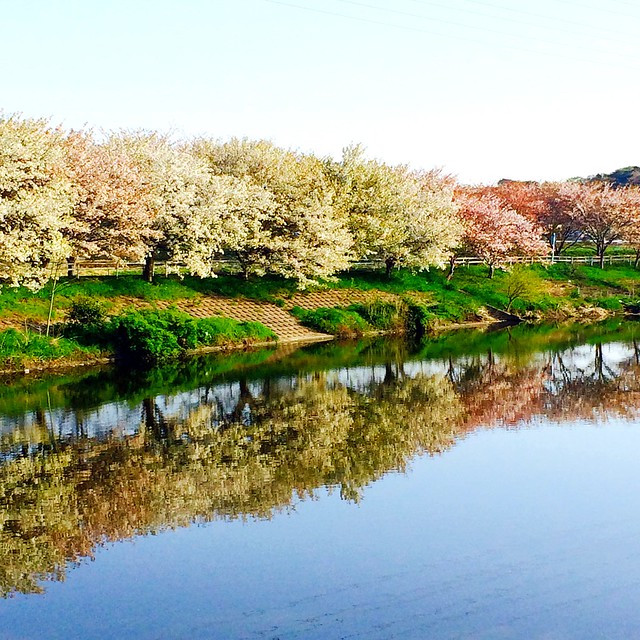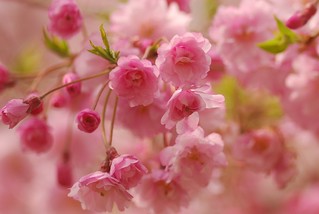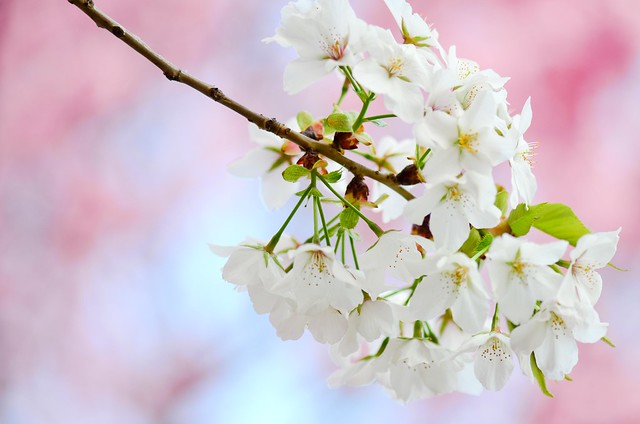 |
| photo by Totomai |
What a
strange thing!
to be
alive
beneath
cherry blossoms.
In the
cherry blossom's shade
there's
no such thing
as a
stranger.
Everyone feels grief
when cherry blossoms scatter.
Might they then be tears–
those drops of moisture falling
in the gentle rains of spring?
 |
| photo by Totomai |
Midweek Motif ~ Cherry Blossoms
Cherry blossoms mean springtime and cherries in
summer, yum! They also stand in for clouds, impermanence, beauty and
sadness and more. We can travel on their petals. Today
we have been blessed with amazing photos of the blossoms by Totomai Martinez who featured them in his blog last Friday: Sakura. There you will find his recommendations for Cherry
blossom contemplation (Hanami) in Japan. The poems above are in the Japanese poetic forms of haiku and tanka.
 |
| photo by Totomai |
Your Challenge: Build a poem with Cherry blossoms as your central image or recurring motif. If you use a photograph, be sure to credit the photographer.
The green catalpa tree has turned
All white; the cherry blooms once more.
In one whole year I haven’t learned
A blessed thing they pay you for.
The blossoms snow down in my hair;
The trees and I will soon be bare.
. . . .
(read the rest HERE at the Poetry Foundation)
On this first day of spring, snow
covers the fruit trees, mingling improbably
with the new blossoms like identical twins
brought up in different hemispheres.
It is not what Housman meant
when he wrote of the cherry
hung with snow, though he also knew
how death can mistake the seasons,
. . . .
(Read the rest HERE at the Poetry Foundatiuon)
For those who are new to Poets United:
Oh, yes! Today is the first day of National Poetry Month in the USA, Canada and a few other countries. Good luck to all of you who are accepting a challenge to write a poem a day during April. I am going to try with help from prompts at Poetic Asides, NaPoWriMo, and Imaginary Garden with Real Toads. We'd love to know if you are attempting the challenge. Please share links to the sites you are using for prompts and community during the challenge. Thanks! ~Susan for Poets United
Mister Linky's Magical Widgets -- Auto-Linky widget will appear right here!
This preview will disappear when the widget is displayed on your site.
If this widget does not appear, click here to display it.

